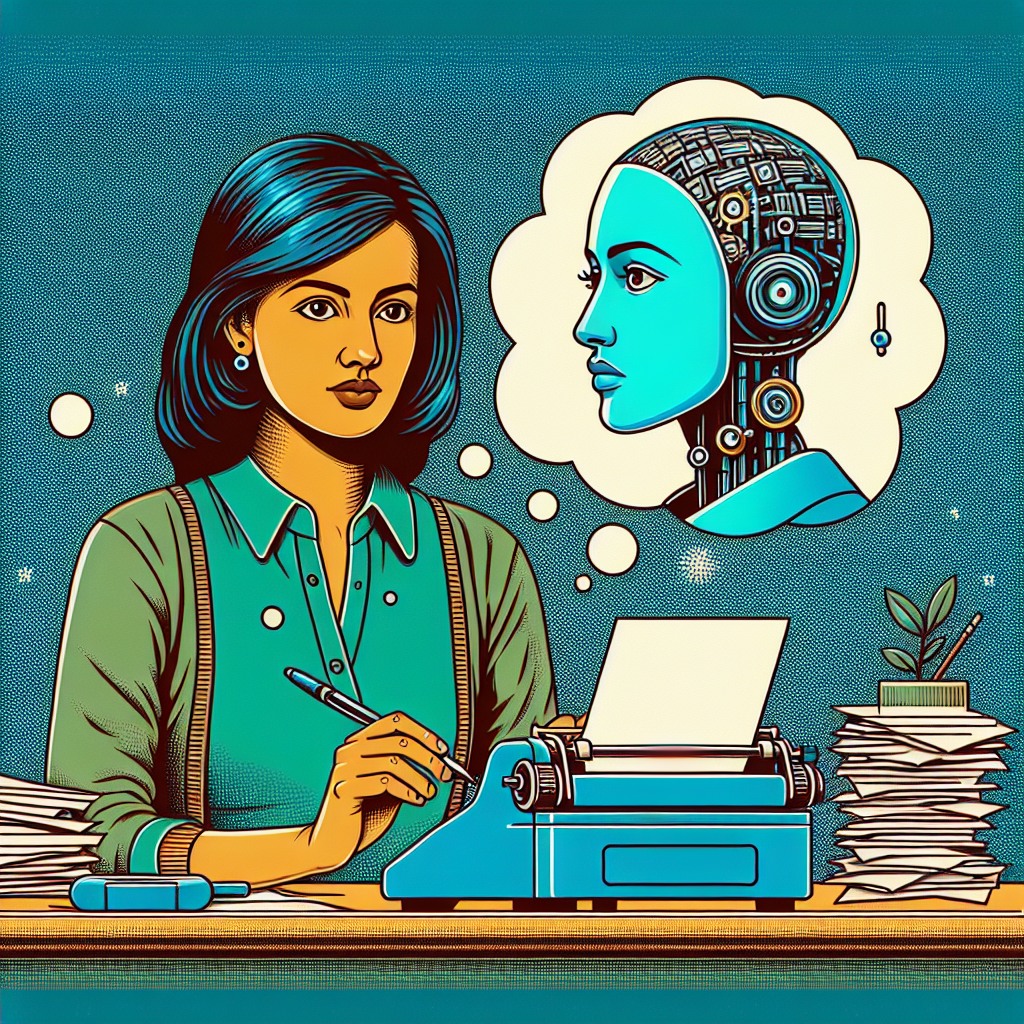In recent years, advancements in artificial intelligence (AI) have been making headlines across various industries. From self-driving cars to virtual assistants, AI technology has been rapidly evolving and transforming the way we live and work. One area that has seen significant developments in AI technology is journalism. The question that many are now asking is: can AI replace human journalists?
The idea of AI replacing human journalists may seem far-fetched to some, but the reality is that AI has already started to make its mark in the world of journalism. AI-powered tools are being used by news organizations to automate tasks such as data analysis, fact-checking, and even writing articles. These tools are able to process vast amounts of data in a matter of seconds, allowing journalists to focus on more in-depth reporting and analysis.
One of the main advantages of using AI in journalism is its ability to process large amounts of data quickly and accurately. For example, AI can analyze social media trends, public opinion, and other data sources to identify emerging news stories and topics of interest. This allows journalists to stay ahead of the curve and provide more timely and relevant news coverage.
Another benefit of using AI in journalism is its ability to generate personalized content for readers. AI-powered tools can analyze a reader’s preferences and interests, and tailor news articles to suit their individual needs. This can help news organizations attract and retain readers, as well as increase engagement and readership.
Despite these advantages, there are still some limitations to using AI in journalism. One of the main concerns is the potential for bias in AI algorithms. AI relies on data to make decisions, and if that data is biased or incomplete, it can lead to biased or inaccurate news coverage. This is a significant issue that news organizations must address when implementing AI in journalism.
Another limitation is the lack of creativity and critical thinking skills in AI. While AI can process data and generate articles quickly, it lacks the ability to think critically, ask questions, and provide context and analysis. Human journalists are able to provide insights, opinions, and perspectives that AI simply cannot replicate.
So, can AI replace human journalists? The answer is not a simple yes or no. While AI technology has the potential to revolutionize the field of journalism and improve efficiency and accuracy, it cannot replace the creativity, critical thinking, and emotional intelligence that human journalists bring to the table. Instead, AI should be seen as a tool to augment and enhance the work of journalists, rather than replace them entirely.
As AI continues to advance, it is likely that we will see more collaboration between human journalists and AI-powered tools. Journalists can use AI to automate routine tasks, analyze data, and generate content, while focusing on more complex reporting and analysis. This symbiotic relationship between humans and AI has the potential to revolutionize the field of journalism and provide readers with more accurate, timely, and personalized news coverage.
In conclusion, while AI technology has the potential to transform the field of journalism, it cannot fully replace human journalists. The creativity, critical thinking, and emotional intelligence that humans bring to journalism are irreplaceable. Instead, AI should be seen as a tool to augment and enhance the work of journalists, allowing them to focus on more in-depth reporting and analysis. As AI technology continues to evolve, we can expect to see more collaboration between humans and AI in the field of journalism, leading to more innovative and engaging news coverage.
FAQs:
1. Can AI write articles on its own?
While AI-powered tools can generate articles based on data and information, they lack the creativity, critical thinking, and emotional intelligence that human journalists bring to the table. AI-generated articles may lack context, analysis, and insights that human journalists provide.
2. Will AI replace human journalists in the future?
While AI technology has the potential to transform the field of journalism, it cannot fully replace human journalists. AI should be seen as a tool to augment and enhance the work of journalists, allowing them to focus on more in-depth reporting and analysis.
3. Are there any limitations to using AI in journalism?
Some limitations of using AI in journalism include the potential for bias in AI algorithms, the lack of creativity and critical thinking skills in AI, and the inability to provide context, analysis, and insights that human journalists provide.
4. How can AI benefit journalism?
AI can benefit journalism by automating routine tasks, analyzing data quickly and accurately, generating personalized content for readers, and identifying emerging news stories and topics of interest. This allows journalists to focus on more in-depth reporting and analysis.
5. What is the future of AI in journalism?
As AI technology continues to evolve, we can expect to see more collaboration between human journalists and AI-powered tools in the field of journalism. This symbiotic relationship has the potential to revolutionize the way news is produced and consumed, leading to more innovative and engaging news coverage.

